Amazing journey from victim of apartheid to Ambassador of ‘Rainbow Nation’
Words MAXMILIAN WECHSLER
Words MAXMILIAN WECHSLER
| HIS Excellency Geoffrey Quinton Mitchell Doidge was born into the apartheid system of old South Africa. As a ‘coloured’ man, the deck was stacked against him, but through intelligence, hard work and courage was able to become a successful businessman. With the release of Nelson Mandela and the arrival of a new day in South Africa, Mr Doidge put his extraordinary abilities to work in the service of the fledgling democracy he dearly loves. The story behind the man who was appointed Ambassador to Thailand in September 2016, presented here in his own words, is simply amazing. “I was born in Kokstad, East Griqualand, in what was formerly known as Cape Colony. Post-democracy it is called KwaZulu-Natal. Kokstad is named after Captain Adam Kock III, who led his people from Phillipolis in the Freestate, over the feared Drakensberg Mountains. He came over Accident Mountain Pass (Ongeluksnek) to settle in East Griqualand, which was named after the first people to occupy and own the land, who were later disposed under the Black Land Act of 1913 and the Group Areas Act. “I am the second eldest of Ernest and Felicia Doidge. My parents, were very successful farmers and my childhood days were spent on the farm, Glen Edward, on the foothills of the beautiful Drakensberg Mountains which form the border between South Africa and the Kingdom of Lesotho. The Drakensberg mountain range is the highest and longest mountain range in Southern Africa with peaks that stand 3,482 meters above sea level and extend northeast to southwest for 1,125 kilometers. |
“In summer the mountain range is transformed into a spectacular area of natural beauty. Stretching for hundreds of kilometers, it makes up the spine that holds up the greatest plateau in southern Africa. There is an abundance of plant and animal life, including many protected species, and the plateau boasts some of the most beautiful rock art and paintings from ancient times, which is a testimony as to who the original owners of the land were. In winter the peaks are often snowcapped. I have always regarded this as God’s own country, and I have many fond memories of going trout fishing, horse riding, hunting, hiking and camping with my Dad.
“My family is Catholic and so I attended mostly Catholic schools run by the Sisters of the Holy Cross. I learned to speak Sesotho, Isixhosa and Isizulu, and of course English, which I consider my mother tongue. I was later compelled to accept an Afrikaans education.
“Growing up in racially divided, communities, churches, schools, shops, health services and so on began to change my outlook on life. I saw my parents being belittled and shouted at simply because they entered the post office door by the front door, which they done for decades, but which now had a sign above it saying ‘Whites Only’. This was humiliation at its worst. Whichever way I turned, what the United Nations declared to be a ‘crime against humanity’ – apartheid confronted me. My family fell on hard times and the apartheid state became brutal as it enforced the system.
“What then followed was totally unexpected. We witnessed racially based forced removals, dispossession of land and assets and evictions. These became a daily occurrence and my father would go out in the dark of the night, putting all of us at risk, to help move so called, ‘black
people’ to safe areas to avoid confrontation with the police.
“I was an ambitious young man who knew what I wanted to achieve in life. I started work at the age of seventeen, and at twenty I landed my first management job at a parts department for a Toyota franchise. I married my wife Carol a year later. I had two ambitions in life: one was to have my own business and the second was to make a contribution to ending the brutal system of apartheid.
“When I turned 26, a close friend of mine and I decided to start our own business to trade in auto parts. We had no idea what we were going up against until we came face to face with the brutal realities of apartheid. We were prohibited from trading in a so called ‘white business area’. Notwithstanding these challenges, there was no turning
back. It just had to work and so it did. On the March 13, 1978 we opened our doors for business in an area proclaimed to be off-limits for business people from our racial group and with hardly any capital. After three years of extreme hard work and determination to succeed at all costs, we were able to register our company Rob-Jeff (Pty) Ltd, trading as Parts Centre Kokstad, with a turnover of over one million rand per annum.
“My family is Catholic and so I attended mostly Catholic schools run by the Sisters of the Holy Cross. I learned to speak Sesotho, Isixhosa and Isizulu, and of course English, which I consider my mother tongue. I was later compelled to accept an Afrikaans education.
“Growing up in racially divided, communities, churches, schools, shops, health services and so on began to change my outlook on life. I saw my parents being belittled and shouted at simply because they entered the post office door by the front door, which they done for decades, but which now had a sign above it saying ‘Whites Only’. This was humiliation at its worst. Whichever way I turned, what the United Nations declared to be a ‘crime against humanity’ – apartheid confronted me. My family fell on hard times and the apartheid state became brutal as it enforced the system.
“What then followed was totally unexpected. We witnessed racially based forced removals, dispossession of land and assets and evictions. These became a daily occurrence and my father would go out in the dark of the night, putting all of us at risk, to help move so called, ‘black
people’ to safe areas to avoid confrontation with the police.
“I was an ambitious young man who knew what I wanted to achieve in life. I started work at the age of seventeen, and at twenty I landed my first management job at a parts department for a Toyota franchise. I married my wife Carol a year later. I had two ambitions in life: one was to have my own business and the second was to make a contribution to ending the brutal system of apartheid.
“When I turned 26, a close friend of mine and I decided to start our own business to trade in auto parts. We had no idea what we were going up against until we came face to face with the brutal realities of apartheid. We were prohibited from trading in a so called ‘white business area’. Notwithstanding these challenges, there was no turning
back. It just had to work and so it did. On the March 13, 1978 we opened our doors for business in an area proclaimed to be off-limits for business people from our racial group and with hardly any capital. After three years of extreme hard work and determination to succeed at all costs, we were able to register our company Rob-Jeff (Pty) Ltd, trading as Parts Centre Kokstad, with a turnover of over one million rand per annum.
| After more than a decade in business Carol and I sold our shares and began to focus on the liberation struggle. Carol and I shared a common vision in politics and although we had a very young family at the time, the risks of being arrested and charged with treason did not deter us. We are founding members of the then Kokstad Civic Association, Chairman of the Kokstad Branch of the African National Congress (banned at the time), the East Griqualand Border-Kei Development Forum and several other Civil Society organizations in east Griqualand and the Republic of the Transkei. “After the release of Nelson Mandela, I was elected to Regional and National leadership positions of the African National Congress. Our roles in the liberation struggle exposed us to risks and there were three attempts on my life. Carol and I were nominated to stand for elections in 1994, and Carol decided that victory was finally in sight and she withdrew her nomination. “What made me a political activist: My family was classified Coloured under the foundation law of the brutal Apartheid system: namely the notorious Population Registration Act of 1950, which classified all South Africans as either Bantu (Africans), Coloured (those of mixed race), White or Asian (Indians and Pakistanis). My grandfather was an Englishman, Ernest Doidge, a cabinet maker from Devonshire, England, and my grandmother was Stella Rose Doidge, daughter of Sir Walter Booth. In my Dad’s family some members were classified ‘white’ and others as ‘coloured’, which compelled to them to be separated. The system of apartheid was brutal and was appropriately declared a crime against humanity by the United Nations. |
“The struggle for liberation lasted for well over eight decades and it was ended in 1994 when each and every South African irrespective of race or gender was able to cast their vote. For the majority of South Africans it was the very first time that they could vote.
“The ‘Original Sin’ of land dispossession started in 1913, and is still going on 105 years later. This is what President Ramaphosa has the task of finally resolving. This matter he will handle competently, as when he negotiated one the most successful political settlements in modern history and helped to write the most progressive constitution. This matter will be settled within the framework of the constitution and the law, of which South Africa’s independent judiciary is the custodian of.
“Very few can claim that they understand the inhumanity and indignity that the apartheid system inflicted upon so called non-whites (blacks, coloureds and Indians). While many are quoted as acknowledging that the system was wrong, unless they experienced it themselves they will never really know what these racial groups experienced. We are the Rainbow Nation that ended racial discrimination and opted for a nation ‘United in Diversity’ and that collectively stood for a Truth and Reconciliation Commission that is helping to heal the wounds of the past, and achievement the people of South Africa are proud of.
“President Nelson Mandela was 75 and Archbishop Desmond Tutu was 62 when they voted for the very first time. Chief Justice Michael Corbett convened the first sitting of the National Assembly and on the 9th May, elected members constituted the first non-racial, non-sexist,
democratically elected National Assembly, with the largest number of women members in history. Justice Corbett presided over the election of the first democratically elected President of South Africa, Nelson Mandela. On the 10th May, 1994, at the Union Buildings in Pretoria, President Mandela, South Africa’s took his oath of first democratically elected President took his oath of office.
“The ‘Original Sin’ of land dispossession started in 1913, and is still going on 105 years later. This is what President Ramaphosa has the task of finally resolving. This matter he will handle competently, as when he negotiated one the most successful political settlements in modern history and helped to write the most progressive constitution. This matter will be settled within the framework of the constitution and the law, of which South Africa’s independent judiciary is the custodian of.
“Very few can claim that they understand the inhumanity and indignity that the apartheid system inflicted upon so called non-whites (blacks, coloureds and Indians). While many are quoted as acknowledging that the system was wrong, unless they experienced it themselves they will never really know what these racial groups experienced. We are the Rainbow Nation that ended racial discrimination and opted for a nation ‘United in Diversity’ and that collectively stood for a Truth and Reconciliation Commission that is helping to heal the wounds of the past, and achievement the people of South Africa are proud of.
“President Nelson Mandela was 75 and Archbishop Desmond Tutu was 62 when they voted for the very first time. Chief Justice Michael Corbett convened the first sitting of the National Assembly and on the 9th May, elected members constituted the first non-racial, non-sexist,
democratically elected National Assembly, with the largest number of women members in history. Justice Corbett presided over the election of the first democratically elected President of South Africa, Nelson Mandela. On the 10th May, 1994, at the Union Buildings in Pretoria, President Mandela, South Africa’s took his oath of first democratically elected President took his oath of office.
“When Nelson Mandela entered the National Assembly for the very first time, members and guests in the public gallery went ecstatic and burst into freedom songs and this one resonates in my mind, ‘Mandela, there is none other like you’ sung in isiXhosa.
“Whilst some ululated, others sang whilst others, burst into tears. The struggle for freedom had lasted for three hundred and fifty long and hard years; Nelson Mandela and many other leaders served decades in prison.
“South Africa adopted the proportional list system for elections and I was elected to public office, on the Eastern Cape list. I served as a ‘backbencher’ for the first few weeks and was the elected to serve as one of the three whips responsible for Parliaments, Programme and Legislation.
“Our first task was to establish and setting up a democratic ‘people’s parliament’ so the rules and standing orders had to be redrafted, amended and at times new drafts submitted. At the same time we had to consider legislation to transform State, and at the same time Parliament had two years to draft a new Constitution and to establish a Truth and Reconciliation Commission to deal with the past.
“The Constitutional Assembly, chaired by President Cyril Ramaphosa was established and I served on Theme Committee 2: that had the mandate to deliberate, give inputs and make recommendations to what is now Chapter 4 of the Constitution, which deals with the Executive and Parliament.
“Whilst some ululated, others sang whilst others, burst into tears. The struggle for freedom had lasted for three hundred and fifty long and hard years; Nelson Mandela and many other leaders served decades in prison.
“South Africa adopted the proportional list system for elections and I was elected to public office, on the Eastern Cape list. I served as a ‘backbencher’ for the first few weeks and was the elected to serve as one of the three whips responsible for Parliaments, Programme and Legislation.
“Our first task was to establish and setting up a democratic ‘people’s parliament’ so the rules and standing orders had to be redrafted, amended and at times new drafts submitted. At the same time we had to consider legislation to transform State, and at the same time Parliament had two years to draft a new Constitution and to establish a Truth and Reconciliation Commission to deal with the past.
“The Constitutional Assembly, chaired by President Cyril Ramaphosa was established and I served on Theme Committee 2: that had the mandate to deliberate, give inputs and make recommendations to what is now Chapter 4 of the Constitution, which deals with the Executive and Parliament.
| All members of the Theme Committee were also members of Parliamentary Portfolio and Standing Committees and had obligations to participate in the demanding legislative process of transforming the state from Apartheid to a Constitutional Democracy. In the first three years of the First Democratic Parliament both houses had busy legislative schedules aside from writing the Constitution, some 250 Acts were assented to by His Excellency President Mandela. Members of the Constitutional Assembly also participated in expansive and biggest public participation program, ever in the history of South Africa. People were consulted on controversial matters such as the death penalty, property rights and many other topics. |
“Parliament also had to consider and pass crucial legislation such as the Promotion on National Unity and Reconciliation Act in 1995 which gave us the Truth and Reconciliation Commission, now world renowned for its uncompromising process of truth telling, accountability and publicly at that.
“From the onset of my political career in Parliament, I have served in several positions over the past twenty four years, from being a Provincial Whip for Programming and Legislation Whip, Deputy Chief Whip of the Majority Party, Chairperson of Committees, House Chairperson of Committees, and last held positions are as Cabinet Minister, High Commissioner and Ambassador. I have served many Parliamentary and Cabinet Committees of National importance.
“I believe I served at the most interesting time in our history and have been exposed to the leadership of the greatest leaders of all time, to mention a few, President Nelson Mandela, Govan Mbeki, Andrew Mlangeni, Ahmed Kathrada, Walter Sisulu, Albertina Sisulu, Mama Tambo, David Ndawaonde, Wilton Mkwayi, Chris Hani, Steve Tshwete, Winnie Madikizela Mandela and this list goes on. I also had the honour of meeting Oliver Reginald Tambo and many more inspirational figures.”
“From the onset of my political career in Parliament, I have served in several positions over the past twenty four years, from being a Provincial Whip for Programming and Legislation Whip, Deputy Chief Whip of the Majority Party, Chairperson of Committees, House Chairperson of Committees, and last held positions are as Cabinet Minister, High Commissioner and Ambassador. I have served many Parliamentary and Cabinet Committees of National importance.
“I believe I served at the most interesting time in our history and have been exposed to the leadership of the greatest leaders of all time, to mention a few, President Nelson Mandela, Govan Mbeki, Andrew Mlangeni, Ahmed Kathrada, Walter Sisulu, Albertina Sisulu, Mama Tambo, David Ndawaonde, Wilton Mkwayi, Chris Hani, Steve Tshwete, Winnie Madikizela Mandela and this list goes on. I also had the honour of meeting Oliver Reginald Tambo and many more inspirational figures.”
Coming to Thailand
“My last assignment before coming to Thailand was as a National Government Cabinet Minister. I served under President Kgalema Mothlante and then President Jacob Zuma. President Zuma appointed me High Commissioner to Sri Lanka in April 2011 and I was there for five and a half years. Sri Lanka was my first diplomatic posting and it was a steep learning curve for me.
“I visited Thailand in May 2016 for the very first time and took up my post as ambassador to Thailand, Cambodia, Laos and Myanmar on September 13, 2016. Our tour of duty is normally four years, but could be just over the prescribed period. The past two years have been interesting and exciting for Carol and me to be posted to Thailand. We are very busy at the mission, and the time is flying by really fast. We were of course in Thailand at the time of the passing of His Majesty King Bhumibol Adulyadej, and witnessed first-hand the love and sincere respect that the Thai people have for their Monarch. It was a humbling experience. Attending the Royal funeral and cremation was a very emotional and incredibly impressive, once-in-a-lifetime experience.
“We both found the people of Sri Lanka, most amazing and friendly. We are proud to say that Sri Lankans opened their hearts and homes to us and we have become one with them. We were able to identify with and were able to make a significant contribution to the transition, given our
own South African experiences. We witnessed the country come together and become one of the most promising countries of South East Asia, with enormous potential. Of course we have lots of friends there and we miss them.
“My last assignment before coming to Thailand was as a National Government Cabinet Minister. I served under President Kgalema Mothlante and then President Jacob Zuma. President Zuma appointed me High Commissioner to Sri Lanka in April 2011 and I was there for five and a half years. Sri Lanka was my first diplomatic posting and it was a steep learning curve for me.
“I visited Thailand in May 2016 for the very first time and took up my post as ambassador to Thailand, Cambodia, Laos and Myanmar on September 13, 2016. Our tour of duty is normally four years, but could be just over the prescribed period. The past two years have been interesting and exciting for Carol and me to be posted to Thailand. We are very busy at the mission, and the time is flying by really fast. We were of course in Thailand at the time of the passing of His Majesty King Bhumibol Adulyadej, and witnessed first-hand the love and sincere respect that the Thai people have for their Monarch. It was a humbling experience. Attending the Royal funeral and cremation was a very emotional and incredibly impressive, once-in-a-lifetime experience.
“We both found the people of Sri Lanka, most amazing and friendly. We are proud to say that Sri Lankans opened their hearts and homes to us and we have become one with them. We were able to identify with and were able to make a significant contribution to the transition, given our
own South African experiences. We witnessed the country come together and become one of the most promising countries of South East Asia, with enormous potential. Of course we have lots of friends there and we miss them.
| Bilateral relations There is very interesting story to be told about Thailand’s relations with South Africa. The first arrival of the Siamese in Africa was recorded by a French envoy to the Court of Ayutthaya in the 17th Century. The envoy reports that on 26th April 1686. the Siamese boat was shipwrecked at Cape Agulhas, South Africa, which is known as the ‘Cape of Storms’ and is the geographic southern tip of the African continent. The Siamese sought shelter from the governor of Cape Colony, Simon van der Stel and later on boarded a Dutch VOC ship back to Siam. “The first Consul of Siam was appointed in 1914 and was based in Cape Town, and later on in Durban. After the Bandung Conference in 1955, Thailand’s diplomatic ties with Apartheid South Africa were suspended in 1956. |
“After the release of Nelson Mandela in 1990 many countries began looking more favourably toward South Africa and the transition that was unfolding. On 10th October, 1992, the Thai Cabinet approved the opening of the Royal Thai Consulate-General in Rosebank, Johannesburg, later moved to Pretoria.
“In 1993 the two governments decided to establish formal bilateral relations and Thailand upgraded its representation to the ambassadorial level on 9th December 1993.
“In 1994, Mr Narumitrekagarn was appointed the first Thai Ambassador to South Africa and Mr Roel Hendrick Goris first South African Ambassador to Thailand. He presented his credentials, to His Majesty King Bhumibol Adulyadej on 26th April 1994, a day before the first democratic elections in South Africa. Later on the Royal Thai Embassy in Pretoria was established. President Mandela visited Thailand in 1997.
“Since the establishment of diplomatic relations between Thailand and South Africa in 1993, relations between the two countries have strengthened substantially in all aspects. Thailand has embarked on a strategy to expand its influence and its ties with Africa, and in this process views South Africa as a strategic trade partner. South Africa also views Thailand as a gateway to Southeast Asia and the Mekong sub-region countries.
“South African-Thai Chamber of Commerce was established in 1995. A bi-lateral trade agreement was signed in May 2001. Figures from 2017 show a strong 7% growth in bilateral trade over 2016. Total trade volume is around US$3.2 billion, with Thailand enjoying a substantial trade surplus. It should be noted that South Africa is Thailand’s biggest trading partner in Africa, whereas Thailand is South Africa’s largest Southeast Asian trading partner. The South African Embassy in Thailand strives to increase South African access for its products and work is under way to achieve this. We largely focus on value-added exports products and the giving priority to agricultural products and several other sectors.
“The top five exports from South Africa to Thailand in 2017 were iron and steel machinery, wood pulp & paper, chemicals and automotive parts. Top five export products from Thailand in 2017 were original equipment components, vegetables, machinery, automotive parts,
plastics and rubber products, respectively. Original equipment components were the most important Thai exports to SA accounting for half of the total Thai exports.
“Thailand has always maintained a trade surplus with South Africa, and the main reason is that nearly half of its exports to South Africa consist of original equipment components for the automotive industry, and in particular for Toyota Motors and Ford Motor in South Africa. The combination of the equipment components and automotive parts were 62% of the total Thai exports.
“In this regard, several Thai manufacturers of automotive parts have seen bright prospects in locating their production in South Africa and are now exploring opportunities in setting up plants to supply parts to SA car manufacturers directly. Thai investments in South Africa began with small and medium sized businesses in agriculture, processed food and trading and trading of
products such as plastic and canned food.
“Whereas several South African companies recognize the importance of Thailand and have established several operations in manufacturing and in professional service in Thailand, there is room and potential for more investment.
“This year it is estimated that close to 100,000 South Africans will visit Thailand, with far fewer Thais visiting South Africa.”
Development of South Africa
“The tide has turned under the stewardship of His Excellency President Cyril Ramaphosa, who ushered in a ‘New Dawn’ when he became head of state earlier this year. His vision of a new growth path for economic development, employment and transformation, is welcomed by the majority of the South Africans, the markets and investors and the international community.
The President has placed the country back in the realm of being a promising investment destination with policy certainty and global competitiveness. President Ramaphosa led the negotiations for a political settlement and establishment of a democratic South Africa and chaired the Constitutional Assembly which wrote the Constitution of South Africa. South Africa has eleven official Languages with a population of fifty seven million people.
“Whilst we are member of the G20, we are also member of BRICS. South Africa is well positioned currently as we account for fifty percent of the continents spending power, the highest Industrial output and South Africa’s gross domestic product comprises twenty five percent of the
entire continents GDP. In the southern hemisphere we have the busiest container handling port which with a turnover of 2.3 million container moves per annum.
“The development needs of the majority of our people have been the uppermost urgent matter of the Government since 1994. There were areas in our country where people had no running water, no electricity, no roads, no bridges, no clinics, no telephones, and no hospitals, no schools and the newly elected Government adopted the Reconstruction and Development Programme as it official policy to address the legacy of the past. The country has made significant strides and whilst the gap is closing we face many other challenges such as long devastating drought which has lasted for several years in certain provinces. Considering where the country was in 1994 significant strides have been made.
“South Africa has come a long way since 1994, and is currently a member of the United Nations and participates fully in all other multilateral institutions and plays aconstructive and meaningful role in global affairs. Next year we will take up the non-permanent seat on the Security Council, with the support of the African Union and its member states.
“South Africa was the last country to join BRICS. This request for participation happened after consultations with the Global South and South Africa has always made its position clear that its participation in BRICS is to also be the voice and platform for Africa and is also a the former co-chair of the Forum on China-Africa Cooperation FOCAC. President Cyril Ramaphosa hosted heads of state and governments of the five BRICS countries (Brazil, Russia, India, China and South Africa) that are all members of the G20, with over 3.1 billion people, or 41% of the world population, and four of them in the top ten of the world population.
“All of these countries have considerable influence in their regional affairs and represent the largest emerging market economies. They have a combined GDP of US$18.6 trillion and US$4.46 trillion in combined foreign reserves.
“South Africa finds itself in a unique, but special position because it also has strong historic and economic relations with European Union countries. Africa needs the type of technologies which will allow it to leapfrog into the fourth industrial revolution.
“There were many bilateral agreements signed between South Africa and the BRICS partners. The 10th BRICS Summit Johannesburg Declaration makes it clear that we need to safeguard and strengthen multilateralism, restore the centrality of the United Nations in order to maintain international peace and security, advance development, plus promote and protect human rights. BRICS is leading in people-to-people relations civil society actors, academics, business, labour and our youth can also bring huge advancements in our relations.`
“South Africa has at the recent United Nations General Assembly continued to call for comprehensive reforms of the United Nations and Security Council and has shown its commitment to the World Trade Organisation systems.
“This year South Africa is also Chair of Southern African Development Community (SADC) and has always played a lead role in the SADC Parliamentary Forum.
“South Africa as chair of the Indian Ocean – Rim Association (IORA) will host the IORA Council of Ministers and the Committee of senior Officials meetings in October and November 2018.
“South Africa supports and is a signatory to the establishment of an African Continental Free Trade Area, which will fundamentally transform African economies, giving rise to a new industrial age on the continent.”
Personal
In closing, Mr Doidge said: “As for my hobbies and relaxation, I like touring, traveling, exploring, photography, walking, dancing, sports, writing and I am an avid reader. I don’t have all that much free time, but fortunately love my job of representing my country so I am always inspired and positive!”
“The tide has turned under the stewardship of His Excellency President Cyril Ramaphosa, who ushered in a ‘New Dawn’ when he became head of state earlier this year. His vision of a new growth path for economic development, employment and transformation, is welcomed by the majority of the South Africans, the markets and investors and the international community.
The President has placed the country back in the realm of being a promising investment destination with policy certainty and global competitiveness. President Ramaphosa led the negotiations for a political settlement and establishment of a democratic South Africa and chaired the Constitutional Assembly which wrote the Constitution of South Africa. South Africa has eleven official Languages with a population of fifty seven million people.
“Whilst we are member of the G20, we are also member of BRICS. South Africa is well positioned currently as we account for fifty percent of the continents spending power, the highest Industrial output and South Africa’s gross domestic product comprises twenty five percent of the
entire continents GDP. In the southern hemisphere we have the busiest container handling port which with a turnover of 2.3 million container moves per annum.
“The development needs of the majority of our people have been the uppermost urgent matter of the Government since 1994. There were areas in our country where people had no running water, no electricity, no roads, no bridges, no clinics, no telephones, and no hospitals, no schools and the newly elected Government adopted the Reconstruction and Development Programme as it official policy to address the legacy of the past. The country has made significant strides and whilst the gap is closing we face many other challenges such as long devastating drought which has lasted for several years in certain provinces. Considering where the country was in 1994 significant strides have been made.
“South Africa has come a long way since 1994, and is currently a member of the United Nations and participates fully in all other multilateral institutions and plays aconstructive and meaningful role in global affairs. Next year we will take up the non-permanent seat on the Security Council, with the support of the African Union and its member states.
“South Africa was the last country to join BRICS. This request for participation happened after consultations with the Global South and South Africa has always made its position clear that its participation in BRICS is to also be the voice and platform for Africa and is also a the former co-chair of the Forum on China-Africa Cooperation FOCAC. President Cyril Ramaphosa hosted heads of state and governments of the five BRICS countries (Brazil, Russia, India, China and South Africa) that are all members of the G20, with over 3.1 billion people, or 41% of the world population, and four of them in the top ten of the world population.
“All of these countries have considerable influence in their regional affairs and represent the largest emerging market economies. They have a combined GDP of US$18.6 trillion and US$4.46 trillion in combined foreign reserves.
“South Africa finds itself in a unique, but special position because it also has strong historic and economic relations with European Union countries. Africa needs the type of technologies which will allow it to leapfrog into the fourth industrial revolution.
“There were many bilateral agreements signed between South Africa and the BRICS partners. The 10th BRICS Summit Johannesburg Declaration makes it clear that we need to safeguard and strengthen multilateralism, restore the centrality of the United Nations in order to maintain international peace and security, advance development, plus promote and protect human rights. BRICS is leading in people-to-people relations civil society actors, academics, business, labour and our youth can also bring huge advancements in our relations.`
“South Africa has at the recent United Nations General Assembly continued to call for comprehensive reforms of the United Nations and Security Council and has shown its commitment to the World Trade Organisation systems.
“This year South Africa is also Chair of Southern African Development Community (SADC) and has always played a lead role in the SADC Parliamentary Forum.
“South Africa as chair of the Indian Ocean – Rim Association (IORA) will host the IORA Council of Ministers and the Committee of senior Officials meetings in October and November 2018.
“South Africa supports and is a signatory to the establishment of an African Continental Free Trade Area, which will fundamentally transform African economies, giving rise to a new industrial age on the continent.”
Personal
In closing, Mr Doidge said: “As for my hobbies and relaxation, I like touring, traveling, exploring, photography, walking, dancing, sports, writing and I am an avid reader. I don’t have all that much free time, but fortunately love my job of representing my country so I am always inspired and positive!”
|
CV of H.E. Geoffrey Quinton Mitchell Doidge Academic qualifications Mount Currie Senior Secondary School. Qualifications obtained for non-degree purposes Business Management and Marketing. Career and political history
Membership of cabinet clusters, committee and inter-ministerial committees: Cabinet clusters:
Inter-ministerial committees:
Parliamentary and political:
|
Career/Positions/Memberships/Other Activities:
|

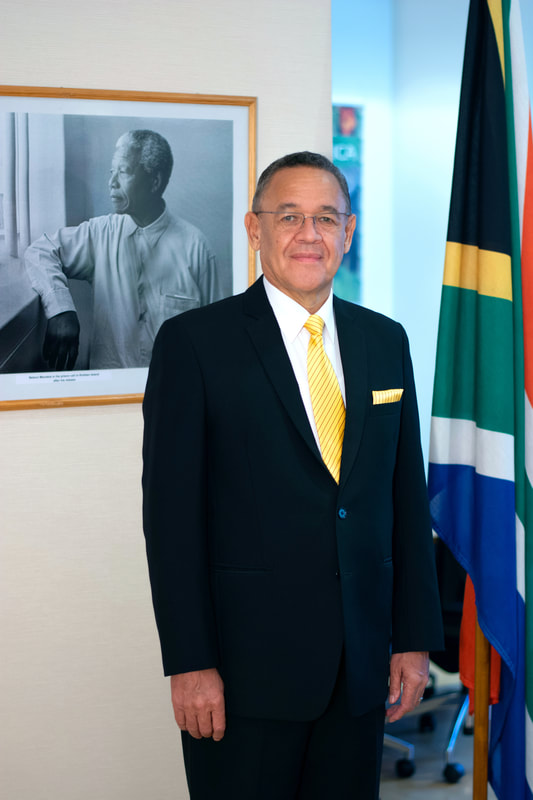
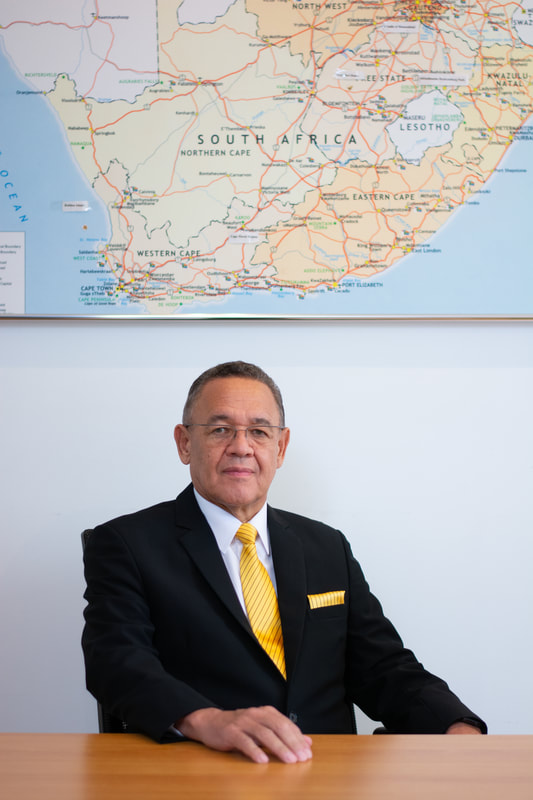
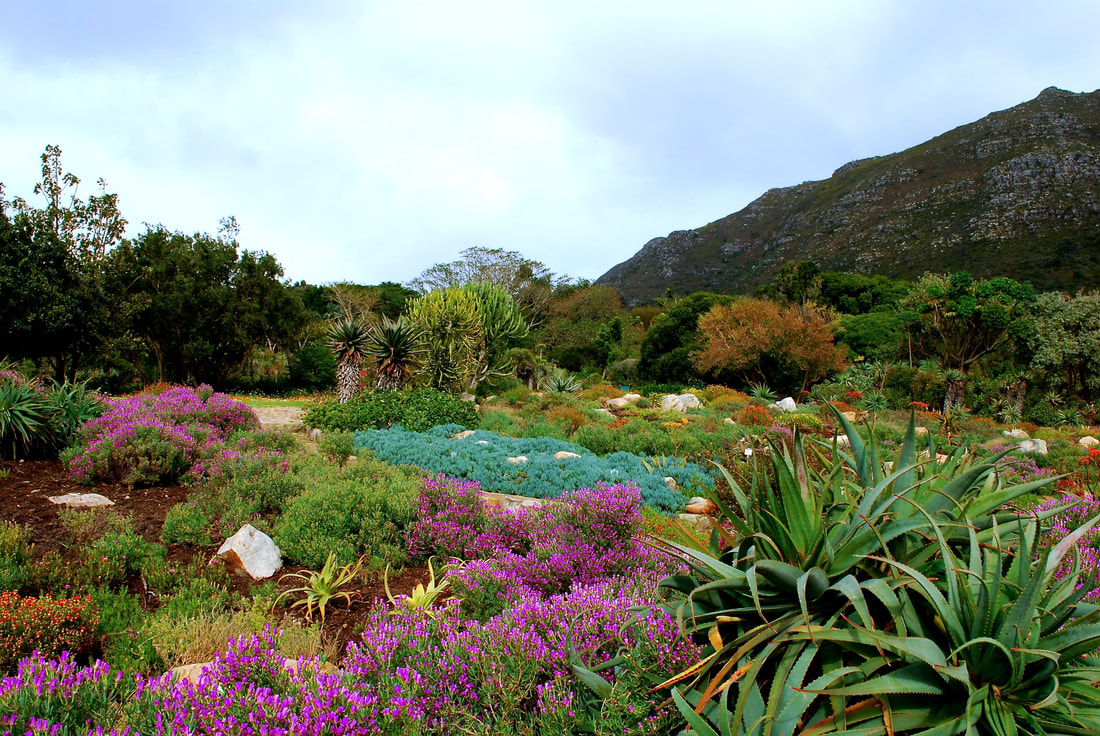
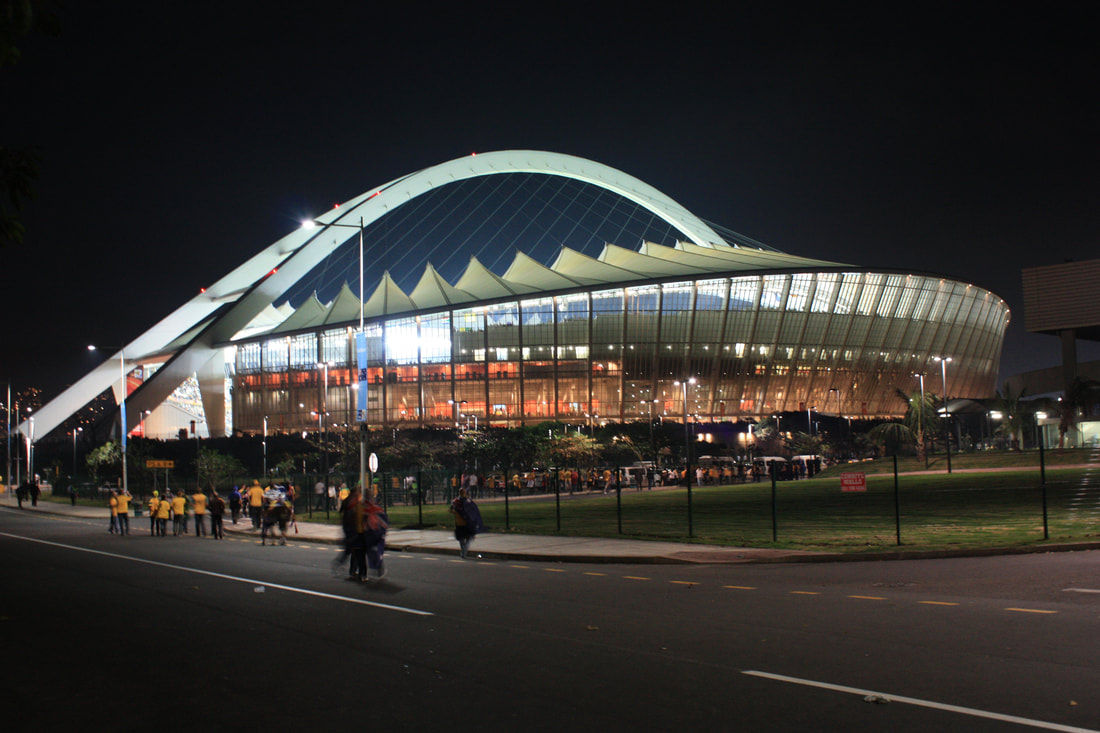
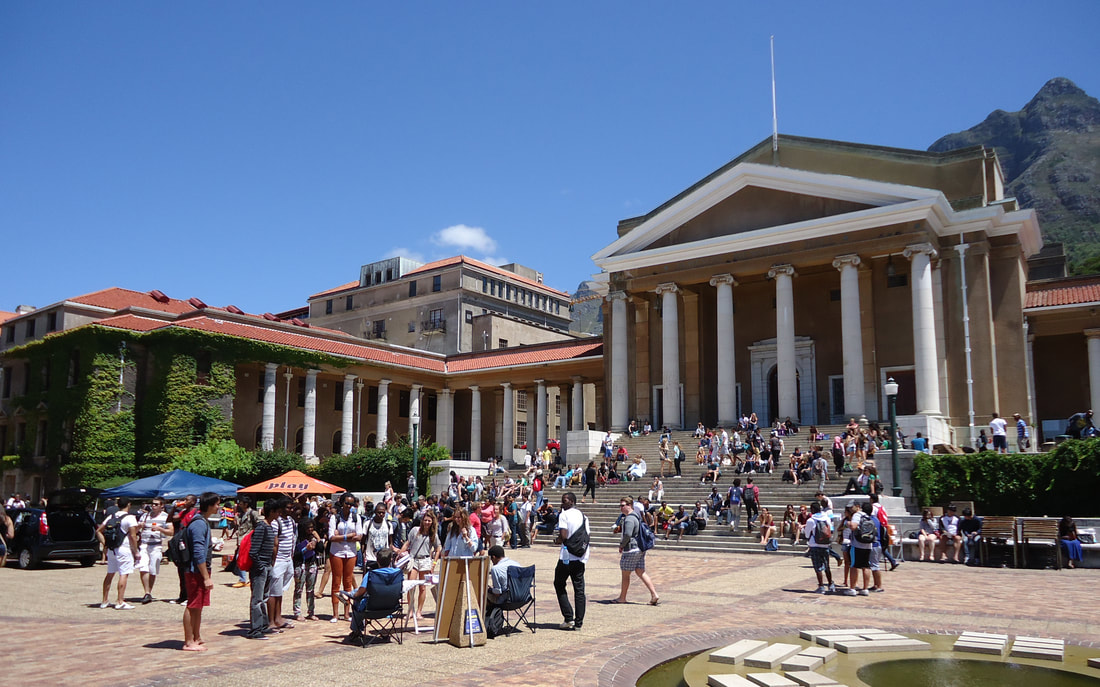
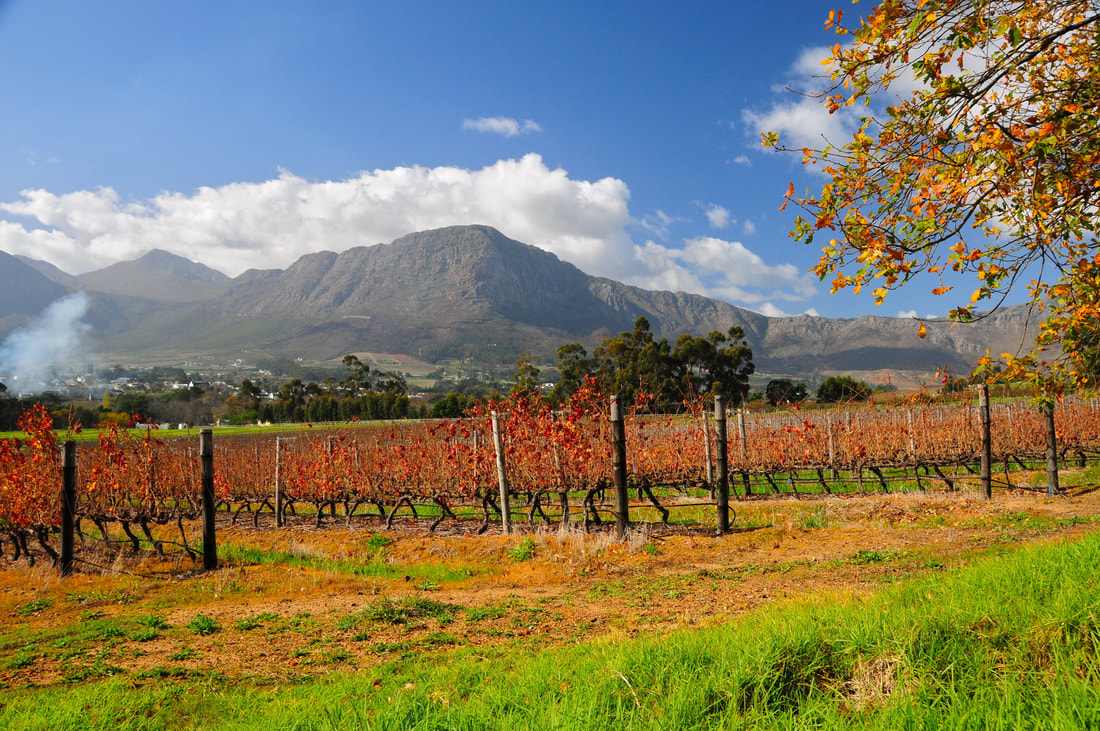
 RSS Feed
RSS Feed
















